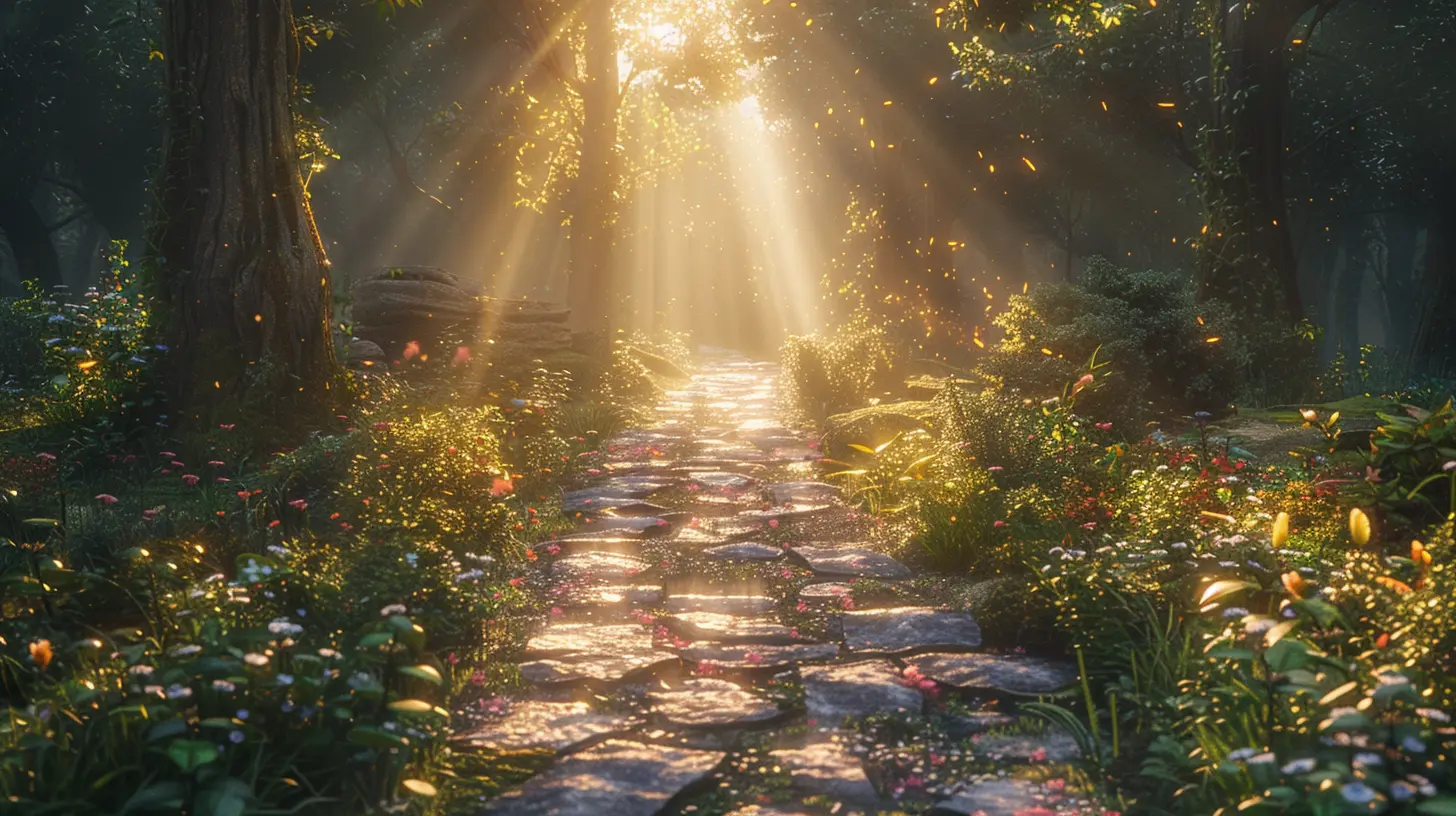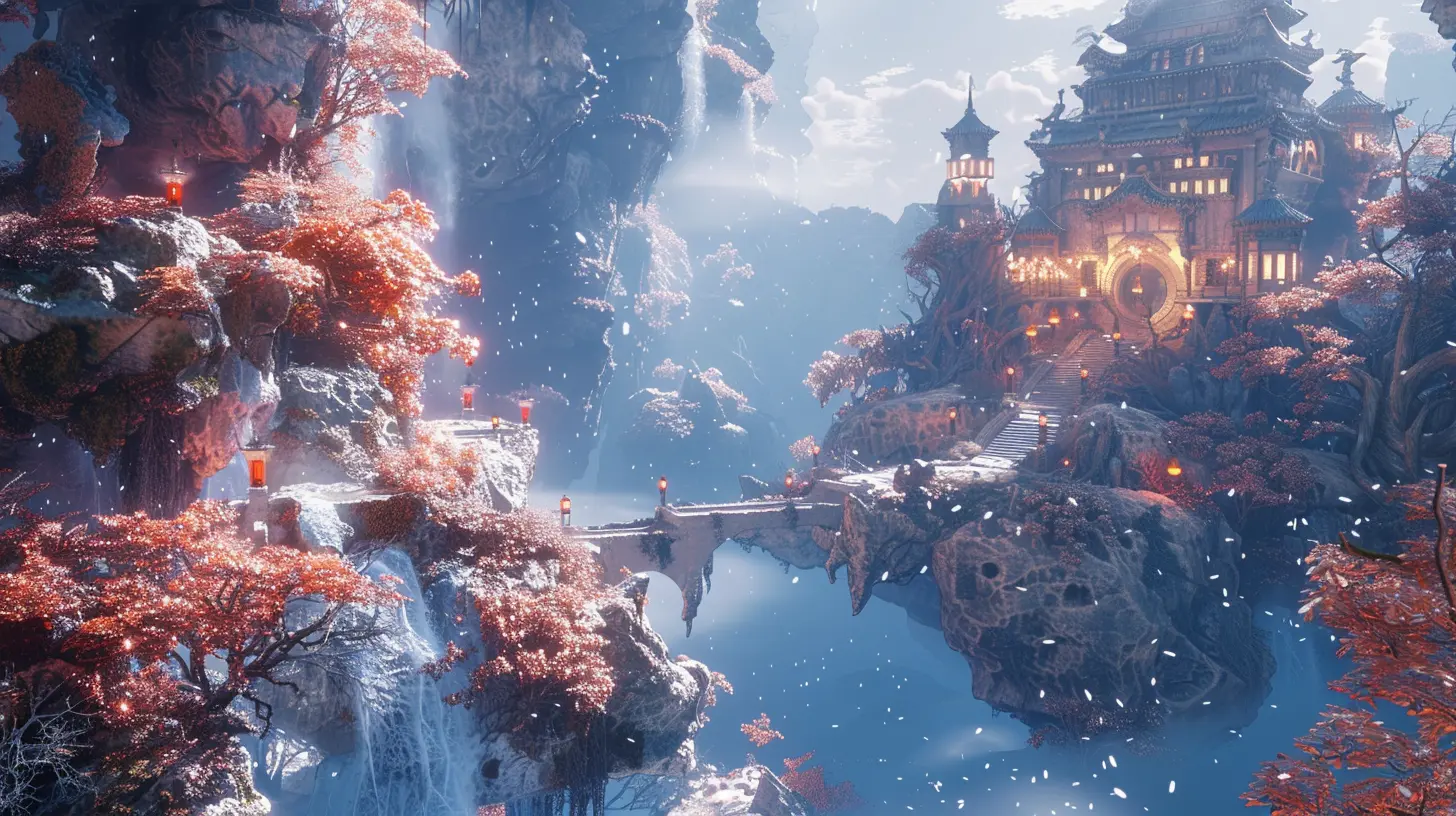The Evolution of Game Engines: Unity, Unreal, and Beyond
30 September 2025
Game engines are the unsung heroes of the gaming world. They're the backstage crew making sure every explosion, jump, and tear-jerking moment in a game plays out just right. Over the past few decades, game engines have come a long way—from chunky pixel pushers in the '90s to near movie-level realism today. It’s a journey worth diving into, especially if you're a gamer, a budding developer, or just a tech geek curious about how the magic happens.
In this article, we’re going to break down the evolution of game engines with a spotlight on the two big dogs—Unity and Unreal Engine. But we’re not stopping there. We’ll also peek into what’s brewing beyond them. So buckle up; it’s going to be one heck of a ride through digital history.
What Exactly Is a Game Engine?
Before we get into the nitty-gritty, let’s clear the air. What is a game engine anyway? Think of it as your kitchen when you’re whipping up a gourmet meal. Ingredients (models, textures, sounds) go in, and with the help of your stove (engine), you cook up a delicious game. A game engine brings together all the components needed to build, render, and run a game.It handles the heavy lifting—graphics rendering, physics, audio, input, AI, and more. So instead of coding everything from scratch (ugh, no thank you), developers can focus on actual game design and storytelling.
The Dawn of Game Engines
Let’s rewind a bit—to the ‘80s and early ‘90s. Back then, most game engines were built in-house, from scratch, for a specific game. No plug-and-play solutions, no drag-and-drop. Just pure brute-force coding.Remember Doom? Yeah, that groundbreaking FPS from 1993. It ran on the id Tech engine, one of the early examples of what we could call a "general-purpose" engine. It was such a hit that other studios licensed it to build their own games. That was the spark. Developers started realizing, “Hey, we don’t need to reinvent the wheel every time.”
And from there, the engine race began.
Unity: The Indies’ Superpower
Let’s talk Unity. Launched back in 2005, Unity was a game-changer—literally. Before Unity, making games was pretty much a AAA-exclusive club. You needed fat budgets, huge teams, and years of development. Unity kicked that door wide open.Why Did Unity Take Off?
Simple. It was:- Affordable (even free for smaller devs),
- User-friendly with a gentle learning curve,
- Cross-platform (build once, run anywhere),
- And had a huge asset store for plug-and-play goodies.
Suddenly, indie developers around the world had a shot at making their dream games without needing a massive studio behind them.
Games That Put Unity on the Map
- Monument Valley – That mind-bending puzzle game? Built with Unity.- Hollow Knight – A beautifully dark metroidvania loved by many.
- Among Us – Yup, that viral pandemic powerhouse used Unity under the hood.
It’s safe to say Unity democratized game development. And to this day, it’s the go-to engine for mobile games, VR, AR, and indie projects.
Unreal Engine: Big Guns for AAA Games
Now enter Unreal Engine—Unity’s slick, high-performance cousin. Developed by Epic Games and first used in the original Unreal game in 1998, this engine has come to define high-end game graphics.What Sets Unreal Apart?
For starters:- Gorgeous visuals powered by Unreal’s cutting-edge rendering tech,
- Blueprints—Epic’s visual scripting system (great for non-coders),
- A massive community and learning resources,
- And well, it’s free to use until you start making serious bank.
Unreal’s Crown Jewels
- Fortnite – Epic’s own baby, and a cultural phenomenon.- Gears of War
- Final Fantasy VII Remake
- The Matrix Awakens Demo – A jaw-dropping showcase of Unreal Engine 5’s capabilities.
With Unreal Engine 5’s recent release, we’re talking real-time global illumination (thanks, Lumen), virtualized geometry (hello, Nanite!), and jaw-dropping fidelity that blurs the line between games and reality.
If Unity is the Swiss Army knife of game engines, Unreal is a high-powered sniper rifle with thermal vision—precise, powerful, and not for the faint of heart.
Head-to-Head: Unity vs Unreal
So… Unity or Unreal? Which one’s right for you?| Feature | Unity | Unreal Engine |
|--------|--------|----------------|
| Ease of Use | Great for beginners | More advanced but manageable |
| Graphics Quality | Solid, esp. for mobile | Industry-leading visuals |
| Best For | 2D, mobile, AR/VR, indie titles | High-end 3D, AAA games |
| Programming Language | C
| C++ & Blueprints |
| Cost | Free + Pro plans | Free until you earn $1M revenue |The choice really depends on what you’re making. Want a mobile RPG or a VR meditation app? Unity’s your friend. Building the next Elden Ring? You’ll want Unreal for that.
What’s Beyond Unity and Unreal?
It’s easy to get tunnel vision and think Unity and Unreal are the only players in town. But the reality? There’s a whole world of engines out there, each tailored for different needs.Godot Engine: The Rising Star
Open-source, lightweight, and a darling of indie devs. Godot’s big pitch? Total creative freedom with no licensing fees. It’s especially loved for 2D games and is gaining traction in the 3D space too.CryEngine: The Visual Beast
Remember Crysis? That game that melted GPUs back in the day? Powered by CryEngine. It's known for pushing hardware limits but comes with a steeper learning curve.Amazon Lumberyard
Yeah, Amazon made a engine. It’s based on CryEngine but tweaked for tight integration with AWS and Twitch. It’s an interesting choice, especially for live-service games.Proprietary Engines
Big studios still build their own engines. Rockstar has RAGE, CD Projekt RED has REDengine, and Kojima Productions uses Decima. They offer hyper-focus but are not available to outsiders.The Future of Game Engines
So, what’s next? Let’s peek into the crystal ball.1. Real-Time Everything
With the rise of Unreal Engine 5, real-time rendering is no longer a dream. Streaming games with visuals once reserved for Pixar movies? That’s the new normal.2. Cloud-Based Development
Tools like Unity’s Cloud Build and Epic’s MetaHuman Creator point to a future where your dev workflow lives in the cloud. No more beefy rigs or 200GB game files clogging your PC.3. AI in Game Development
AI is jumping into game engines too. From auto-generating environments to creating lifelike NPCs, the blend of AI and engines is going to redefine how fast and how well games can be made.4. Metaverse and Cross-Reality Integration
Engines are no longer just for games—they’re becoming the backbone of virtual worlds, training simulations, cinematic pre-visualization, and even architecture. Meta’s investments in AR/VR and Epic’s vision for the metaverse mean engines will be everywhere.Game Engines Are So Much More Than Just Tools
At their core, game engines are creativity enablers. They let someone in a dorm room design a game that millions might play. They power jaw-dropping experiences, connect people across the globe, and even help industries outside gaming simulate real-world physics, train employees, and build digital twins.The evolution of engines like Unity and Unreal mirrors the evolution of gaming itself—from niche hobby to billion-dollar cultural juggernaut.
So the next time you’re immersed in a fantastically detailed open world or laughing with friends in a goofy indie co-op, spare a thought for the engine humming quietly underneath it all.
Because behind every great game… is an even greater engine.
Final Thoughts
Whether you favor Unity's accessibility or Unreal's blockbuster capabilities, one thing is clear: game engines have come a long way, and they’re not done evolving. They’re becoming smarter, faster, more intuitive—and more essential across industries. The future holds even more incredible innovations, and as players or developers, we’re lucky to be along for the ride.And hey, who knows? Maybe the next big game engine revolution will come from you.
all images in this post were generated using AI tools
Category:
Gaming IndustryAuthor:

Emery Larsen
Discussion
rate this article
2 comments
Rusty McMahan
Game engines: where pixels come to life and dreams get a graphics upgrade! 🎮✨
February 12, 2026 at 6:03 PM
Peregrine Kim
Always learning from these innovations!
October 4, 2025 at 2:40 AM

Emery Larsen
Thank you! I'm glad you find the innovations inspiring!


